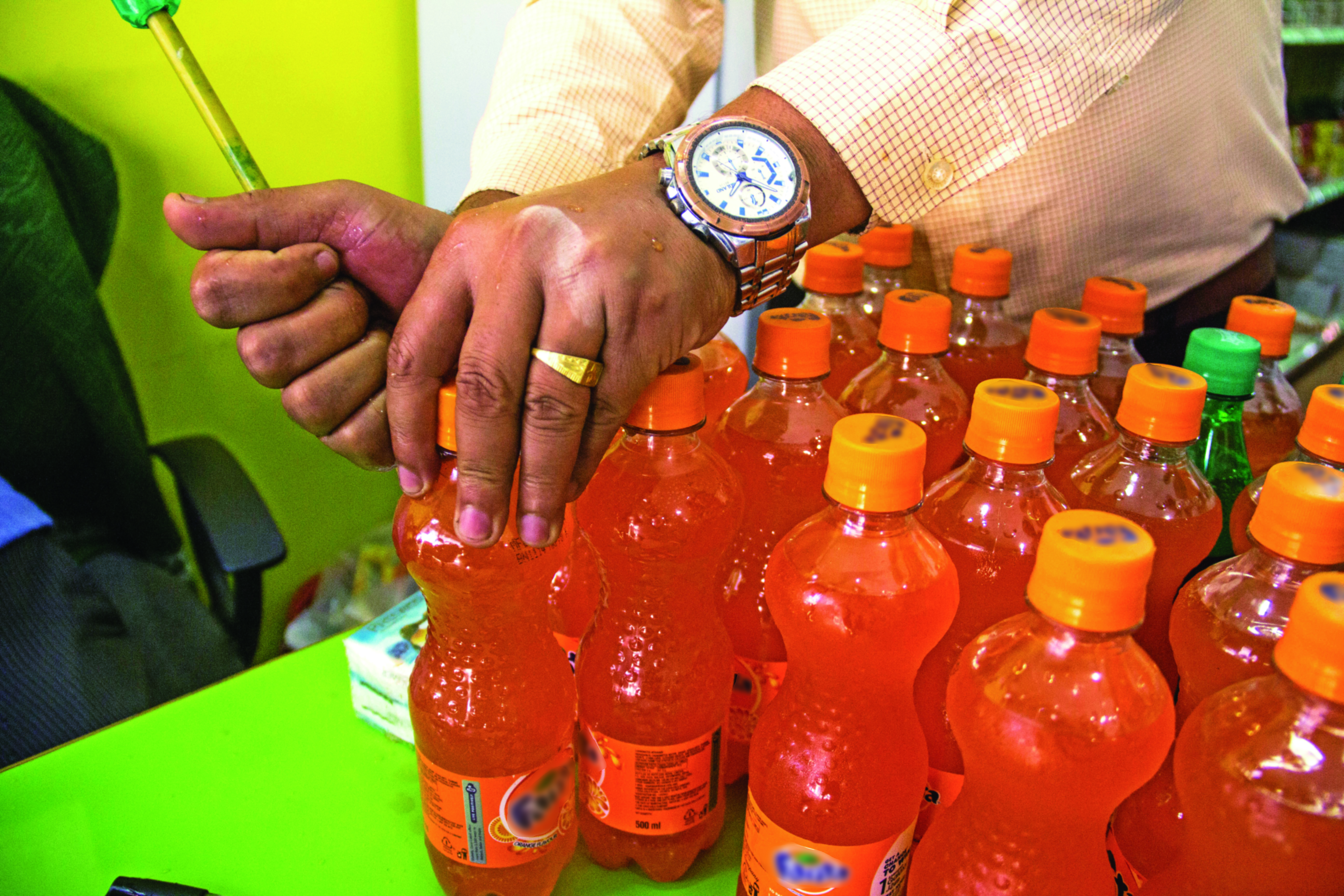Buy smart
Special monitoring activity conducted across the Valley to ensure protection of consumer rights; its effectiveness remains questionable
Kathmandu
With the festive season just around the corner, Department of Supply Management and Protection of Consumers Interest (DoSMPCI) is ferociously clamping down on its market monitoring activities. The special market monitoring being conducted in August has so far sealed 13 business firms for breaching the legal codes; destroyed 1,100-kg
non-edible meat; and fined 248 public vehicle operators for charging extra fare to commuters. The department also sealed 11 brand shops — nine at Durbar Marg and two at New Road for over pricing and billing irregularities.
The list of some destroyed items that were being sold beyond its expiry date in local grocery shops and consumer goods shops around the Valley by DoSMPCI on September 11 and 12 features soft drinks, chocolates, biscuits, condiments and meat products. The inspection team pulled the shutter on Shree Dosti Cold Store — a meat store in Gaurighat for not obeying the earlier provided improvement directives. Butcher shops in the Valley were either closed down or given a warning for not just selling stale products but also for not maintaining hygiene.
Dashain, regarded as one of the biggest festivals for Nepalis, is significant in market economics because it is typically the peak selling season for retailers, suppliers and traders alike around the country. Sales increase dramatically as people purchase gifts, decorations, and supplies (food) in large quantities to celebrate Dashain. This is also the time for fraudulent traders to make more money by selling low quality products to the hungry consumers. Consumer Protection Act, 1998 ensures, “Right to be protected from the sale and supply of consumer goods and services which may harm life, body, health and property.” Despite the fact that there are laws and monitoring bodies, the lack of proper mechanisms and effective implementation of these laws lead to consumers being duped every year.
Unfair trade practices
The market is already gearing up for major footfall and increase in demand for consumer goods, however, the quality of the supply that floods the market remains questionable.
Even in the Kathmandu Valley where consumer awareness is high and where the monitoring activities are frequently conducted, traders still stay under the radar and sell expired food products and non-edible goods on inflated rates. In places where the monitoring bodies have minimal reach like villages outside the Valley consumers are more vulnerable to being duped by unethical business practices.
Be cautious
Food items, clothing, decorative products, jewellery et cetera are the most consumed goods during the festive season. Acharya suggests, “Consumers should check labels and price tags while buying food items and take bills of whatever they buy to avoid being duped.” He stresses on the fact that consumers often hesitate to request for bills while making purchases. He says, “If you feel you are being cheated and abused, you can file a complaint with the concerned authority with the bills as evidences.”
According to Shrestha, the DoSMPCI will be on high alert during festivals; and bereaved consumers can file their complaints through toll free number 16600133044. Shrestha guarantees “immediate action” if the perpetrators are found guilty.






